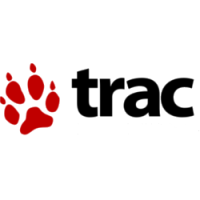
 Data Structure
Data Structure Networking
Networking RDBMS
RDBMS Operating System
Operating System Java
Java MS Excel
MS Excel iOS
iOS HTML
HTML CSS
CSS Android
Android Python
Python C Programming
C Programming C++
C++ C#
C# MongoDB
MongoDB MySQL
MySQL Javascript
Javascript PHP
PHP
- Selected Reading
- UPSC IAS Exams Notes
- Developer's Best Practices
- Questions and Answers
- Effective Resume Writing
- HR Interview Questions
- Computer Glossary
- Who is Who
Top 5 open source bug tracking system
In Software development life cycle (SDLC), tracking bugs is one of the critical area and without this step, SDLC process cannot be completed. Developers are generally required to track bugs using bug tracking software in development projects. There are certain bug tracking system providers in the market which are specialized into tracking bugs and managing of full software projects.
After a detailed research, I have listed down the Top 5 open source bug tracking systems for Linux.
Bugzilla
Bugzilla is an open source bug tracking system. It is used to manage software development which is also helpful to get a handle on software development process. Bugzilla is written in Perl and works on various databases including MySQL and Oracle.
Highlights
- Home Page: http://www.bugzilla.org
- Developed by: Mozilla foundation
- Stable Release: 3.6.1
- License: Mozilla public license
Key Features
- Optimized database structure for increased performance
- Provides security to protect confidentiality
- Advanced query tool that can remember your searches
- Integrated email management system.
- Editable user profiles and comprehensive email preferences
- Comprehensive permissions system
Mantis
Mantis is an open source bug tracking system. It is a web-based bug tracking tool that not only keeps track of bugs but includes a user system where multiple users can interact and multiple projects can be tracked. Mantis bug issue tracking system is written in PHP and works on various databases including MySQL, MS SQL, PostgreSQL.

Highlights
- Home Page: http://www.mantisbt.org
- Stable Release: 1.2.2
- License: GNU v2
Key Features
- Increases scalability and performance
- Provides high security
- Easy to install
- Supports 68 international languages
- Advanced query tool that can remember your searches
- Supported Email notification and RSS Feeds
- Easy to integrate source control system like SVN and GIT
Trac
Trac is an open source bug tracking system which is written in Python. It provides wiki and integration to subversion. Trac web interface has a reputation of being a user-friendly and simple tool.

Highlights
- Home Page: http://trac.edgewall.org/
- Stable Release: 0.12
- License: BSD
Key Features
- Integrated to version control system
- Provides a Timeline to see overview of the project
- It allows wiki markup in issue descriptions and commit messages
Redmine
Redmine is an open source bug tracking system. It is a web-based tool that not only keeps track of bugs but also manages software development. It is written in Ruby on Rails.

Highlights
- Home Page: http://www.redmine.org/
- Stable Release: 1.0.1
- License: GNU v2
Key Features
- Provides project management including Gantt chart
- Provides Wiki projects
- Ability to track time
- Provides LDAP (Lightweight Directory Access Protocol) authentication
Request Tracker
Request Tracker is an open source enterprise-grade bug tracking system and It enables a group of people to intelligently and efficiently manage tasks, issues, and requests submitted by a community of users. It manages key tasks such as identification, create assignments, query resolution and notification updates required by enterprise-critical applications for functions like project management, help desk, NOC ticketing, Customer relationship management and software development.
Highlights
- Home Page: http://bestpractical.com/rt/
- Stable Release: 3.8.8
- License: GPL v2
Key Features
- Ability to track time
- Provides LDAP (Lightweight Directory Access Protocol) authentication
- Provides dashboard reporting and relationship graphic presentations
- It provides encryption, decryption, signing, and verification of email
- Build charts that summarize your activity by time. Can be customized based on requirements
- Full fledge integration with your existing user login system (Legacy system)
Congratulations! Now, you know “Top 5 Open Source Bug Tracking Systems for Linux”. We’ll learn more about these types of commands in our next Linux post. Keep reading!

